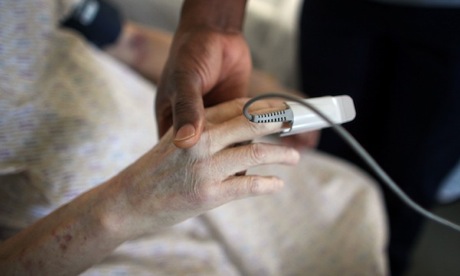The British Government has announced an independent review of an end-of-life protocol used in New Zealand hospitals, following allegations that it is being used as a means of euthanasia for the terminally ill.
The inquiry will focus on the Liverpool Care Pathway, designed to ease the suffering of patients in their last hours or days of life.
The pathway often involves sedation and the withdrawal of life-prolonging drugs, nutrition and hydration.
Critics say people are being put on it without their relatives being informed, and that the pathway is being used to hasten the deaths of patients who are not imminently dying.
When Norman Lamb, Britain’s Care and Support Minister, announced the review, he said consider whether payments to hospitals for meeting targets on their use of the pathway might have led to “bad decisions or practice”.
The Daily Telegraph has revealed that six out of 10 National Health Service hospital trusts had received payments totalling $NZ23 million or more for attaining these goals. In some hospitals more than half of all dying patients were put on the pathway
Department of Health officials have insisted that the payments are to ensure that patients are “treated with dignity” as they die — and many doctors argue that the widespread adoption of the Liverpool Care Pathway has led to improved care for the dying.
“It is clear that everyone wants their loved ones’ final hours of life to be as pain-free and dignified as possible, and the Liverpool Care Pathway is an important part of achieving this aim,” Mr Lamb said.
“However as we have seen, there have been too many cases where patients were put on the pathway without a proper explanation or their families being involved. This is simply unacceptable.”
The Catholic Communications Network said Archbishop Peter Smith of Southwark, chairman of the English and Welsh bishops’ Department for Christian Responsibility and Citizenship, welcomed the review.
It said Archbishop Smith had passed on “specific concerns raised with him by some clinicians” and had called for such an inquiry in a letter to the government in September.
Sources:
Image: The Spectator
